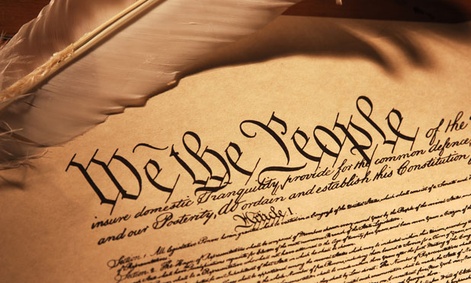ONE YEAR LATER WE THE PEOPLE PETITIONERS HAVE MIXED REVIEWS

Shutterstock.com
As it approaches its one-year anniversary, the White House website that invites people to petition the government and promises to respond to the most popular appeals is getting mixed reviews from users.
Kathleen Summers credited We the People, which will turn one on Saturday, with bringing greater public attention to animal mistreatment by commercial dog breeders. Summers’ petition asking the government to better regulate commercial breeders received 32,000 signatures and led to a proposed new regulation from the Agriculture Department’s Animal and Plant Health Inspection Service.
“It’s an ongoing problem where people in the country feel like they can’t get their voices heard,” said Summers, who manages the Humane Society of the United State’s Puppy Mills Campaign. “To some extent it will always be that way with government. No one can expect a personal response to every letter they send. That’s why this site is really helpful, because it lets the most important issues rise to the top.”
Summers’ petition is one of only a handful that has produced government action.
The Obama administration used its first petition response in October 2011 to announce changes to the government’s income-based student loan repayment program that would significantly lower monthly payments for some borrowers. The link between that policy decision and the petition — which asked the president to forgive all student loan debt — was tenuous, though. Two extremely popular petitions attacking the Stop Online Piracy and Protect IP acts may also have contributed to the White House’s decision to come out in opposition to those Internet regulation bills.
The majority of the 82 petition responses the White House has issued so far have been restatements of administration policy or explanations for why the it can’t comment or doesn’t have jurisdiction in the matter. That has alienated many petitioners.
Erik Altieri, communications director for the marijuana legalization group NORML, told Nextgov in October that he felt shunted off by the administration’s response to his petition, especially by the fact it was lumped together in one response with seven other marijuana legalization petitions. Altieri hadn’t expected the White House to change course on marijuana, he said, but he had “expected to at least get a more direct response instead of the same, old talking points.”
Three petitioners who crossed We the People’s initial threshold of 5,000 signatures for an administration response during the site’s first few weeks are still awaiting a response one year later.
Among those petitioners is Josh Ruebner, national advocacy director for the U.S. Campaign to End the Israeli Occupation, who asked the Obama administration to not veto Palestine’s attempts to join the United Nations. In the year since he filed his petition, Ruebner said, signers have complained to him about the long wait time and speculated the White House was only trying to gather their emails for future outreach.
Creating a We the People account obligates users to receive emails related to the site itself and updates about petitions they’ve signed, according to the terms of participation. The site’s registration page does include an option to “sign up for email updates from President Obama and other senior administration officials,” according to the site.
“I saw the White House responded to someone who wanted the president to declare the existence of alien life forms; I guess they thought that was more important,” Ruebner joked.
“I do think it’s a good step for the administration to engage in this sort of public outreach,” he continued. “I wish it was done more transparently. I wish they did answer all the petitions that receive the requisite number of signatures like they promised . . . We’ve tried to engage with the administration, but we’ve found, with a few exceptions, they’re pretty closed off to us.”
Dustin Chalker also is still waiting a year later for a response to his petition seeking equal treatment for atheist and agnostic members of the military. He speculated in an email that it was easier for the White House to ignore his petition than to risk alienating either side by issuing a response.
“I’ve grown quite cynical [about] the We the People petition process,” Chalker said. “The administration seems to use it to create a superficial veneer of responsive government while doing what it wants to do, anyway. They take action when they agree. They just say ‘no’ when they don’t. They ignore the issue if it would cost political capital to issue an answer. It was a great idea but the implementation is insulting to the ideals it was supposed to represent.”
